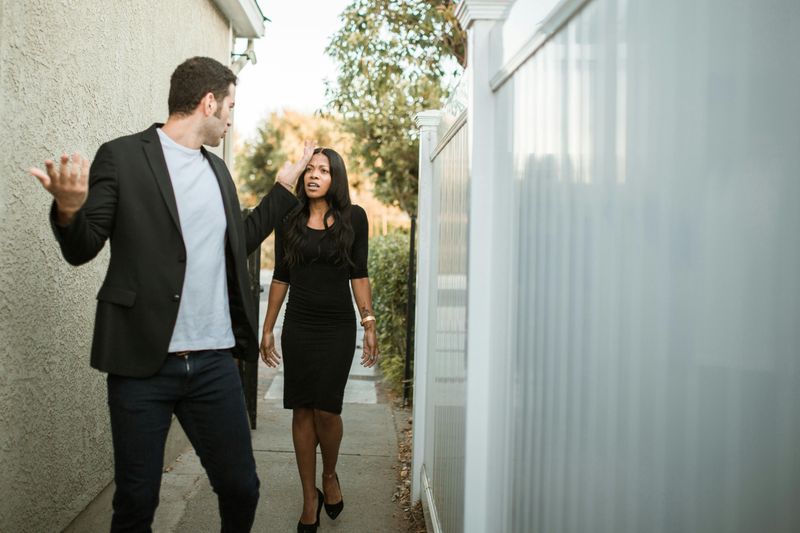13 Reasons Why Many Men Lose Friends as They Get Older

Friendships are vital to our wellbeing, yet many men find their social circles shrinking as they age. This isn’t just about being too busy – though that’s certainly part of it. The reasons behind this friendship drought are complex and often hidden beneath the surface of everyday life. Understanding these patterns might help men recognize and possibly reverse this common but troubling trend.
1. Silent Battles With Mental Health

Depression and anxiety often wear invisible masks. Men suffering from these conditions typically withdraw from social interactions, not because they don’t value friendships, but because the mental energy required feels overwhelming.
Phone calls go unanswered. Invitations get declined. Eventually, friends stop reaching out, assuming disinterest rather than distress.
The stigma around men’s mental health makes this worse. Many guys would rather disappear from social circles than admit they’re struggling, creating a lonely cycle that’s hard to break without proper support.
2. Career Obsession Takes Over

The corner office becomes his second home. Late nights, early mornings, and weekend work sessions gradually replace guy’s nights and weekend hangouts.
Many men define themselves through professional achievements, pouring everything into climbing corporate ladders. The promotion comes, but suddenly he realizes years have passed since he’s had a meaningful conversation that wasn’t about quarterly reports.
Work friends fill the void temporarily, but these relationships often lack depth and disappear with job changes. By the time retirement arrives, the professional connections fade, revealing the true cost of prioritizing career above all else.
3. Emotional Walls Built Too High

“Man up” and “boys don’t cry” – these childhood lessons leave lasting damage. Many men reach midlife having never learned to express vulnerability, keeping conversations permanently stuck at the surface level of sports, politics, and work.
Real friendship requires emotional openness. Without it, relationships remain shallow and easily broken by time and distance.
The fear of judgment from other men creates invisible barriers. That buddy who seems distant might actually be longing for deeper connection but lacks the emotional vocabulary to bridge the gap, so he maintains his carefully constructed fortress instead.
4. The Exhaustion Factor

Remember when staying out late was easy? Now, after juggling work deadlines, family responsibilities, and household maintenance, many men have nothing left in the tank for socializing.
Burnout doesn’t just affect work performance – it demolishes social energy. The thought of making conversation or planning activities feels like another task on an already impossible to-do list.
Friends interpret this withdrawal as disinterest, not recognizing the bone-deep fatigue behind cancelled plans. Gradually, invitations stop coming, and reconnecting requires energy that simply isn’t there, creating a downward spiral of isolation.
5. Zero Tolerance For Toxic Relationships

Age brings wisdom about which relationships truly matter. The drinking buddy who always creates drama? The so-called friend who disappears when help is needed? Many men eventually decide life’s too short for these connections.
This natural pruning process isn’t necessarily bad. Quality over quantity becomes the new standard as men grow more selective about who deserves their limited time and energy.
The challenge comes when this healthy boundary-setting goes too far. Some men develop such strict friendship criteria that almost nobody makes the cut, leaving them with standards too high for real-world relationships.
6. The Solo Habit Loop

Years of handling life’s challenges alone creates a powerful pattern. The man who’s always fixed his own car, solved his own problems, and managed his own emotions often doesn’t think to involve others, even when he could use the help or company.
Self-reliance becomes a default setting. Planning activities with others feels foreign compared to the efficiency of going solo.
This independence can become a prison of habits. Even when loneliness creeps in, the thought of reaching out feels awkward and unnatural after decades of self-sufficiency, creating a comfort zone that’s paradoxically uncomfortable.
7. Trust Broken Beyond Repair

One betrayal can poison the well of friendship for years. The business partner who stole money, the buddy who made a move on his wife, the confidant who shared private information – these wounds cut deep and heal slowly.
Men who’ve been burned often develop a protective skepticism. Small disappointments get magnified through the lens of past betrayals, making new friendships feel risky and potentially painful.
Instead of working through these trust issues, many guys find it easier to keep relationships casual and superficial. The protective shell prevents further hurt but also blocks meaningful connection, creating a lonely safety zone.
8. Partner Becomes The Only Confidant

Marriage offers built-in companionship – a blessing that sometimes becomes a limitation. Many men gradually funnel all their emotional needs toward their spouse, neglecting other relationships.
This partner-centric approach seems efficient. One person knows all your stories, understands your quirks, and provides consistent support. Why maintain multiple connections when one meets all your needs?
The danger appears during relationship struggles or after loss. Men who’ve invested exclusively in their romantic relationship often find themselves completely isolated during divorce or widowhood, discovering too late that friendship muscles atrophy when not regularly exercised.
9. Friendships Lost To Time And Distance

Remember those college buddies who knew all your secrets? Or the neighbors who helped raise your kids? Life has a way of scattering these connections across cities, states, and continents.
Job relocations, family moves, and retirement dreams pull people in different directions. Without deliberate effort, geographic distance creates emotional distance too.
Technology helps but can’t replace in-person connection. Video calls get scheduled, then rescheduled, then forgotten. Holiday cards become the only contact point. Before long, those once-central relationships exist mainly as memories, faded by time and replaced by the immediate demands of current life.
10. Life Stages Growing Apart

Nothing highlights friendship differences like major life transitions. The single friend struggles to relate to new dad challenges. The recently divorced guy feels awkward around happily married couples. The early retiree has different priorities than friends still climbing career ladders.
Conversations that once flowed easily now hit awkward pauses. Weekend availability no longer aligns. Financial situations create uncomfortable disparities in activity choices.
These natural life divergences don’t mean friendships must end. However, they require extra effort to maintain connection across different experiences – effort that many men don’t realize is necessary until the relationship has already faded beyond easy repair.
11. Uncertainty About Repairing Broken Bonds

That argument from three years ago? The missed funeral? The forgotten birthday? Many men carry these friendship failures like invisible weights, wanting to reconnect but unsure how to bridge the gap.
Pride becomes the enemy of reconciliation. The longer the silence stretches, the more awkward that first contact feels, creating a seemingly insurmountable barrier to reaching out.
Unlike women who often directly address relationship issues, men typically lack models for friendship repair. The tools for fixing broken connections—vulnerability, clear communication about feelings, explicit apologies—are precisely the skills many men were never taught, leaving potentially salvageable friendships permanently damaged.
12. Health Limitations Create New Barriers

The body changes with age, often in ways that complicate social connections. Hearing loss makes group conversations in noisy restaurants frustrating. Mobility issues turn hiking trips with buddies into impossible feats. Chronic pain makes sitting through long events unbearable.
Rather than explain these limitations or request accommodations, many men simply withdraw from activities they can no longer fully enjoy. Pride prevents them from suggesting alternatives that might work better.
Friends misinterpret this withdrawal as disinterest rather than adaptation to physical changes. The invitations stop coming, and the man with health challenges finds himself increasingly isolated, caught between physical limitations and communication barriers.
13. Quality Trumps Quantity In Later Years

Remember that packed social calendar from younger days? For many men, aging brings a natural recalibration of social priorities. The desire for meaningful connection grows stronger than the need for extensive social networks.
This shift isn’t necessarily negative. One deep friendship often provides more satisfaction than a dozen superficial connections. Men become more selective, investing time in relationships that offer genuine understanding rather than mere companionship.
The challenge arises when this natural pruning process goes too far. Without conscious attention to nurturing the remaining relationships, even these few connections can wither, leaving men with high standards but empty calendars.

Comments
Loading…